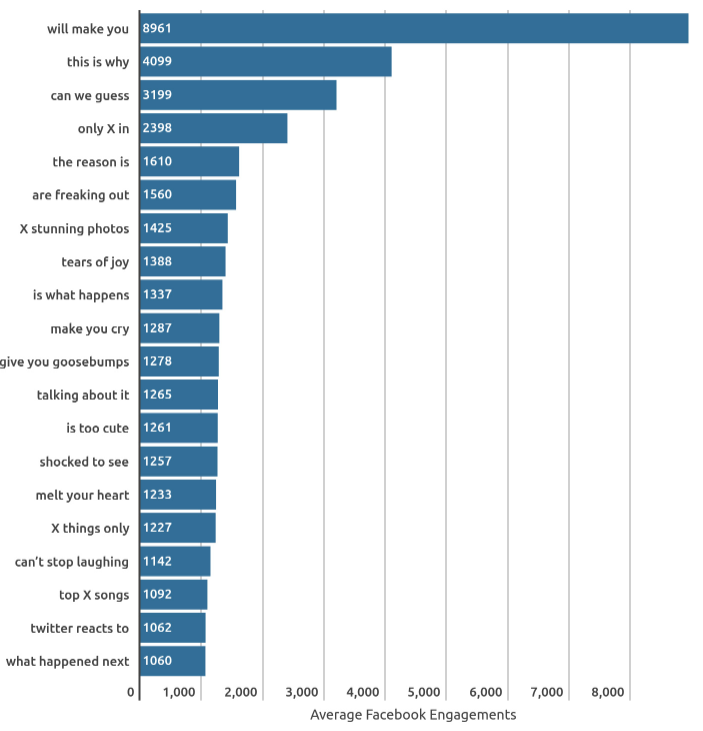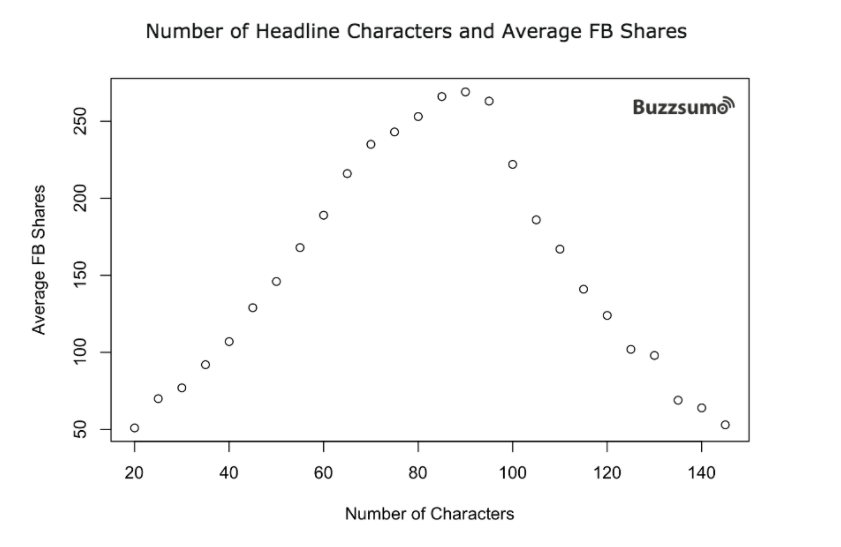Jostling for readers for your listicle on Facebook? Aim for the number “10” in your headline.
Trying to promote a story on Twitter? Emotion-based appeals popular on Facebook don’t translate to Twitter.
Findings from a BuzzSumo trigram analysis of 100 million headlines published between March and May of this year confirms a lot about the clickbait-y, competitive publishing environment of social media.
The analysis reveals nothing particularly surprising, for instance, about the headline phrases that generated the most likes, shares, and comments: “Will make you” was by far the most successful phrase, and emotion-based appeals like “melt your heart” and “make you cry” also do well. (Also, we reported that 10 was the most common number for a BuzzFeed list way back in 2013.)

Publishers beware though: Facebook says its algorithm is cracking down again on clickbait in its News Feed.
Phrases that performed poorly on Facebook? “Control of your,” “work for you,” or “on a budget”— which apparently works well on Pinterest. Phrases that performed well on Facebook don’t work as well in Twitter headlines, where phrases that emphasize immediacy and analysis do best — “what we know,” “things to know,” “this is what.”
On Facebook, it’s also important to hit just the right headline length. Super short or super long headlines don’t appear to be effective. Posts between 12 and 18 words — and between 80 to 95 characters — get the most shares on Facebook.

This particular study draws its insights from some of the most shared stories on Facebook and Twitter, which include articles from major publishers like HuffPost and BuzzFeed; it’ll release separate headlines analysis for sharing business-to-business stories later in the year. You can read the entire post here.
One comment:
“Jawdropping”
Trackbacks:
Leave a comment